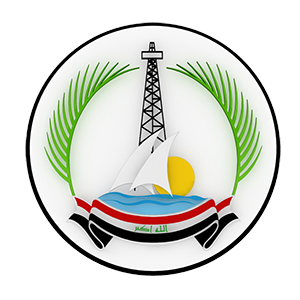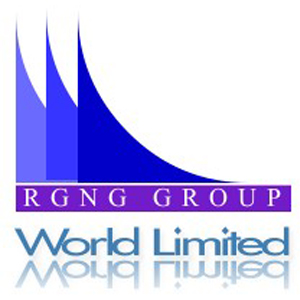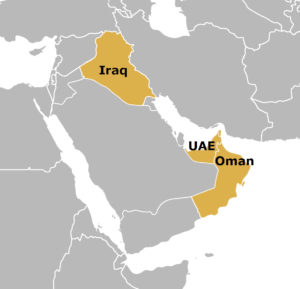Health, Safety & Environment;
Policy Statement:
ALRAND GLOBAL is committed to business practices, operations, and projects that protect people and the environment.
The basis for health, safety, and environmental programs is that accidents causing injuries or illness to personnel or impact on the environment are preventable. It is everyone’s obligation to prevent accidents, and all personnel are expected to conduct business in a manner that actively integrates the elements of the ALRAND GLOBAL Health and Safety Program into applicable aspects of ALRAND GLOBAL operations.
The goal of the ALRAND GLOBAL Health and Safety Program is zero accidents; therefore, accident prevention continues to be of paramount importance to the firm. To this end, safety takes precedence over expediency.
ALRAND GLOBAL is committed to compliance with all client health, safety, and environmental requirements as well as to applicable regulations.
ALRAND GLOBAL has established procedures that provide direction on health and safety matters to all employees. These procedures are periodically evaluated in light of current case law, new regulations, and emerging industry practices.
Each manager/supervisor has the responsibility through personal example to create a climate in which everyone shares a concern for his own safety and the safety of his fellow workers
Health, Safety & Environment;
Safety Recognition & Highlights:
When it comes to safety, we never rest. We are continuously improving our outstanding record and our goal is to consistently outperform our peers as well as the industry standard. Our proactive safety initiatives form the foundation for our success.
We have an unprecedented safety alliance with OSHA, and became the first to garner corporate Voluntary Protection Program Star Status in the engineering and construction industry.
Clients, share ALRAND GLOBAL’ commitment to the highest safety standards, and we have received numerous safety recognition awards as a result
Health, Safety & Environment;
Subcontractor Requirements:
ALRAND GLOBAL utilizes the services of a select group of subcontractors whose attention to safety, environmental matters and work ethic is proven. Our Certified Quality Management System prescribes an approach for the selection and management of subcontractors involving term contracts, a preferred suppliers list, regular audits of performance and in-house subcontractor training. Significant tasks are competitively tendered to maintain cost control discipline and all adopted rates are benchmarked with ALRAND GLOBAL’ wider industry experience.
In addition, subcontracts are not let until appropriate insurances are in place to protect the interests of both our customer and ALRAND GLOBAL. ALRAND GLOBAL sets up annual contracts with selected subcontractors and secures updated certificates of insurance annually.
Important factors in ALRAND GLOBAL’ selection and management of subcontractors include:
- Formal review of the subcontractor’s in-house training records, with particular attention to specific health and safety training.
- Field audits of health and safety competency undertaken by ALRAND GLOBAL’ site representatives as well as spot audits by senior ALRAND GLOBAL staff. Records of audits are maintained and observations are shared with ALRAND GLOBAL staff and subcontractor principals.
- Circulation to subcontractors of lessons learned from near misses/incidents.
- Minimizing subcontractor staff changes through the duration of work to maximize individual knowledge of the site-specific conditions and requirements.
Subcontractors are expected to have all the necessary training for work at any facility including obtaining any site-specific training prior to the start of work. Project specific
training and orientation including but not limited to a Job Safety Analysis and Project Health and Safety Plan would occur prior to the start of the specific task or work phase.
Health, Safety & Environment;
Safety Careers:
At ALRAND GLOBAL Corporation our careers in safety are challenging, rewarding and as varied as the work we perform around the country.
We are looking for high-performing, high-potential candidates to add to our Health, Safety & Environment team
Looking for a position that provides the career opportunities of a lifetime? Seeking a position that applies your talent to exciting and challenging projects? You’ve come to the right place. We operate across four main markets: Power, Structure, Industrial and Commercial. Whether you are a planner, engineer, logistics analyst, aircraft mechanic, or business professional, we invite you to explore the many career possibilities at ALRAND GLOBAL.
ALRAND GLOBAL is an equal opportunity employer. We provide equal employment opportunities to all qualified employees and applicants for employment without regard to race, religion, sex, age, marital status, national origin, sexual orientation, citizenship status, disability or any other legally protected status. We prohibit discrimination in decisions concerning recruitment, hiring, compensation, training, promotions, or any other condition of employment or career development.
About BCSP
The Board of Certified Safety Professionals
The Board of Certified Safety Professionals (BCSP) began in 2004 as a peer certification board. It is not a member organization and does not provide services usually offered by member organizations. Membership in any organization is not a requirement for certification.
Its sole purpose is to certify practitioners in the safety profession. Safety professionals identify hazards and evaluate them for the potential to cause injury or illness to people or harm of property and the environment. The safety professional recommends administrative and engineering controls that eliminate or minimize the risk and danger posed by hazards. They work with professionals in other disciplines in many different job settings. They work for companies, government agencies and private organizations or offer individual professional services. They may engage in design, planning, program management, training, audit and other aspects of practice. Additionally, they apply hazard recognition, evaluation and control knowledge and skills for equipment, systems, facilities and processes, or in operations, manufacturing, transportation, construction, insurance services and other enterprises.
Since its inception, over 300 individuals have achieved the CSP certification and nearly 150 currently hold it. The value of the CSP continues to grow. In the Iraq, numerous laws, regulations and standards cite it. More importantly, many companies include it in position standards, government agencies rely on it and contracts for safety services require it. The average person holding the CSP credential today earns nearly $20,000 more than others in the safety field who hold no certification.
Setting the Standard;
The Board of Certified Safety Professionals is recognized as the leader in high quality credentialing for safety, health, and environmental practitioners in order to enhance the safety of people, property, and the environment.
BCSP:
- Sets standards for professional safety practice.
- Evaluates the academic and professional experience qualifications of CSP candidates and applicants.
- Administers examinations.
- Issues certificates of qualification to those professionals who meet BCSP’s criteria and successfully pass its examinations.
- Monitors continued professional development through mandatory recertification requirements
About our Executive Director;
Abdulla Nori was named Executive Director of the Board of Certified Safety Professionals in September of 2009. BCSP is a professional certification body with over 300 individuals currently certified who are engaged in the performance of safety related activities in the safety, health and environmental fields.
An association executive for most of his career, Mr. Nori served as President & CEO of the Association of Clinical Research Professionals, Executive Director of the Iraqis Society of Plastic Surgeons, President of the Medical Group Management Association and Executive Vice President of the Wisconsin Medical Society before joining BCSP as Executive Director.
Mr. Nori is active in a number of associations and served as an officer and director of the Iraqis Association of Medical Society Executives. He has held a number of appointed positions including serving three years on the Iraqis Secretary of Health and Human Services Advisory Committee on Human Research Protections (SACHRP), the Iraqi Convention and Visitors Bureau Advisory Committee, Chairman of the Governor’s (WI)
Advisory Committee on Health Insurance for the Uninsured and numerous charitable boards.
A graduate of Lenoir (Basra University) with a BA in History, Mr. Nori was honored by his Alma Mater in 2001 with an Honorary Doctor of Humane Letters degree.
Vision;
The Board of Certified Safety Professionals (BCSP) is recognized domestically and internationally by practitioners and stakeholders as the premier certification body for the highest quality of safety, health and environment (SH&E)-related certification products and services, dedicated to the protection of people, property, and the environment.
Mission;
BCSP is the premier certification body providing domestic and international credentialing services to practitioners, technologists, technicians, supervisors, and workers through its recognized excellence, financial strength, continuous improvement and accredited products and services by offering career advancement paths to those persons in safety, health, and environmental practitioners.
Non-Discrimination Policy;
BCSP evaluates all candidates seeking certification without regard to religion, ethnicity, gender, age, national origin, disability, or sexual orientation.
Code of Ethics and Professional Conduct;
Credential holders and those ALRAND GLOBAL using the CSP credential are held to a high standard.
7 Years of Safety Professionalism;
BCSP celebrated 7 years in 2010.
Careers with BCSP;
Periodically, BCSP has open positions. We are always looking for talented individuals.
Board of Certified Safety
Professionals
CODE OF ETHICS AND
PROFESSIONAL
CONDUCT
This code sets forth the code of ethics and professional standards to be observed by holders of documents of
Certification conferred by the Board of Certified Safety Professionals. Certificates shall, in their professional safety
Activities sustain and advance the integrity, honor, and prestige of the safety profession by adherence to these
Standards.
Standards;
- 1. Hold paramount the safety and health of people, the protection of the environment and protection of property
In the performance of professional duties and exercise their obligation to advise employers, clients, employees,
the public, and appropriate authorities of danger and unacceptable risks to people, the environment, or
property.
- Be honest, fair, and impartial; act with responsibility and integrity. Adhere to high standards of ethical
conduct with balanced care for the interests of the public, employers, clients, employees, colleagues and the
profession. Avoid all conduct or practice that is likely to discredit the profession or deceive the public.
- Issue public statements only in an objective and truthful manner and only when founded upon knowledge of the facts and competence in the subject matter.
- Undertake assignments only when qualified by education or experience in the specific technical fields involved.
Accept responsibility for their continued professional development by acquiring and maintaining competence through continuing education, experience and professional training.
- Avoid deceptive acts that falsify or misrepresent their academic or professional qualifications. Not
misrepresent or exaggerate their degree of responsibility in or for the subject matter of prior assignments.
Presentations incident to the solicitation of employment shall not misrepresent pertinent facts concerning
employers, employees, associates, or past accomplishments with the intent and purpose of enhancing their
qualifications and their work.
- Conduct their professional relations by the highest standards of integrity and avoid compromise of their
professional judgment by conflicts of interest.
- Act in a manner free of bias with regard to religion, ethnicity, gender, age, national origin, sexual orientation,
or disability.
- Seek opportunities to be of constructive service in civic affairs and work for the advancement of the safety,
health and well-being of their community and their profession by sharing their knowledge and skills.
Approved by the BCSP Board of Directors, October 2002.
Logo adopted by the Board of Directors April 20
BCSP CODE OF ETHICS AND PROFESSIONAL CONDUCT
Interpretation #1—Approved October 28, 2006
Subject;
Use of U.S. degrees that are not awarded by accredited schools and use of degrees from schools recognized
By U.S. federal or state governments as diploma mills.
Interpretation:
Use of degrees from colleges and universities not holding accreditation from a body recognized by the U.S. Department of Education or the Council for Higher Education Accreditation or degrees from colleges and
universities identified by the United States government or any U.S. state government as a diploma mill or similar unacceptable institution when used to establish or demonstrate professional qualifications shall be deemed in
Violation of Standard #5 of the BCSP Code of Ethics and Professional Conduct, which states: Avoid deceptive acts which falsify or misrepresent their academic or professional qualifications.
Implementation:
Should BCSP receive a complaint after the effective date from anyone regarding an individual holding a certification or status with BCSP that includes suitable evidence of use of a degree defined above, BCSP will act to remove the certification or status from the individual in accordance with Article XIV of the BCSP Bylaws.
Filing a Complaint:
The complaint must name the individual holding a certification or other status with BCSP and include supporting evidence. The evidence must show that the individual named in the complaint:
- a) Uses the unacceptable degree defined above on a business card, in a resume, curriculum vitae, promotional brochure or other document which presents to the public credentials or any such academic degree or in some
other way uses the degree; and
- b) The degree named was awarded by an institution included in the definition above or the individual admitted the degree source on their own document. A complaint that does not provide both elements of evidence is not considered a valid complaint under this interpretation.
BCSP Procedures:
- Upon receipt of a valid complaint that includes the required evidence, BCSP will notify the named individual and request that the individual
- Provide evidence that the complaint is not true; and
2) State in writing whether the individual wishes to retain the BCSP certification or status and agrees to discontinue use of the degree. BCSP may require the individual to sign a written agreement to comply with
Interpretation #1 and to provide such evidence as may be required from time to time to satisfy BCSP that the individual remains in compliance.
- b) If there is no suitable response within 30 days of BCSP forwarding a copy of the complaint to the individual named in the valid complaint, BCSP may institute disciplinary action in accordance with Article XIV of the
BCSP Bylaws.
- c) If BCSP receives a second valid complaint for the same person relating to the same or a different degree falling under Interpretation #1, BCSP may, upon giving notice to the individual, immediately take disciplinary
action against the individual as provided in Article XIV of the BCSP Bylaws.




